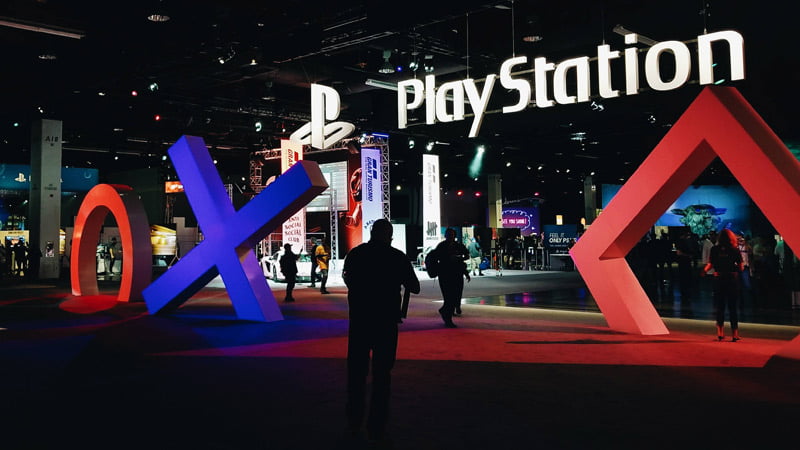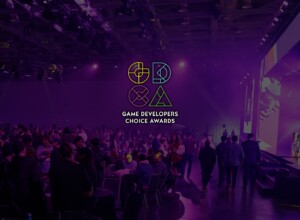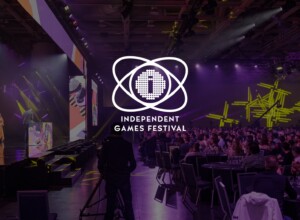Plenty of column inches and minutes of video will be allotted to cover this past PlayStation Experience (PSX) 2017, that is of no doubt.
Trailing the Paris Games Week showcase and The Game Awards ceremony, PSX offers a space for developers and Sony executives to further elaborate on announced titles, trailers, and news directly with fans. Coverage of this event primarily relays press release information widely available elsewhere, and this overview instead focuses in more critically examining what this trade show means, how it’s framed, and what it represents for video games and its broader culture and politics.
PSX is a trade show open to the public and organized by Sony Interactive Entertainment, and as such, its unquestioning celebration of single-brand consumerism comes as no surprise. Panel talks showcase upcoming games and products, and showroom booths offer curated game demos for play and merchandise for sale. The trade show serves as a way for the general public to absorb Sony advertising and feed into the hype for upcoming games that fall under its banner. What I’m interested in is how these game developers and industry executives frame both themselves and the event itself. What is the company image that Sony communicates to attendees? What issues or problems may be overlooked or written out? What values does PSX perpetuate?

In its opening ceremony and panel discussion (in lieu of an overarching keynote), PSX assumed the affectation of domesticity and informality, as if to camouflage the impersonality of a show centered on business and industry. Miscellaneous armchairs and couches were set up facing the audience, and hosts Shawn Layden and Sid Shuman routinely played up this guise of domesticity. Layden and Shuman exchanged banter regarding the staging, remarking that it resembled an IKEA living room, thus reinforcing the conversational, relaxed image that this opening ceremony strived hard to convey. Indeed, these hosts’ discussions often veered to the anecdotal, evoking fireside chats or a casual conversation at one’s home than a corporate trade show.
Nevertheless, PSX is a trade show, and a self-congratulatory one at that. Because the Paris Games Week and Game Awards had occurred prior, the opening ceremony lacked many new reveal trailers and news announcements, favouring instead to host conversations with developers and executives that framed these announcements in ways aligned with industry-friendly public relations teams.
The hosts routinely associated the Sony brand with an emphasis on family and spending time before the holidays, asserting that all those in attendance comprise this family. While this kind of appeal to family values may hold substance for employees who have fostered lasting relationships with co-workers in this field, its rhetoric also evokes that in which industry leaders frame corporations as people for the purpose of political and economic protections.
Personifying this multinational company transforms Sony’s public image into a benevolent entity that “rewards” new games to an impressionable public at events like these, like a parent handing out cookies to a child. Attendees proved eager to shed consumer prudence and buy into brand loyalty, as many shouted out, “Take my money!” throughout the entire panel proceedings. Such unearned embracement of a corporation as a kindly friend suggests unconcern for broader industry problems and the triumph of a marketing conceit.
Corporate spin abounds during press-ready trade shows like PSX. One key point broadcasted throughout the opening ceremony talks was Sony’s dedication to producing single-player, narrative-driven games. While the support of authored video game storytelling is laudable, I can’t help but ask: Where was this publicised patronage years ago? Sony’s current sponsorship of single-player games suggests not the protection of individual gamers’ interests, but a reactionary form of damage control to protect their own profit margins after the significant blowback to microtransactions and the blurred legality of loot boxes in Star Wars: Battlefront II (a game also visibly prominent on the PSX showroom floor).
Gaming culture’s general pushback to exploitative in-game economies embedded within gameplay is necessary to hear, but these PSX statements lacked the specificity of language that would outright condemn such practices. Instead, by simply gesturing towards the controversy without making hard policies or addressing the presence of Battlefront II at this very event, Sony merely offers weak jabs against companies like EA rather than making strides towards change.

As these opening talks continued throughout the night, a number of game developers stepped onstage as the face of their respective companies. These one or two representatives of each studio mask the broader labor contexts and woes of such massive enterprises. Developers and executives assume friendly faces and take ownership of the labor of hundreds, if not thousands, of unseen workers. I’m thinking of the circumstances of the recent SAG-AFTRA voice actor’s strike for instance, because the red-haired protagonist Aloy in Horizon Zero Dawn was heavily marketed throughout PSX 2017 despite the character’s voice actress Ashly Burch’s key involvement in the strike.
PSX foregrounded the fame of voice talents with autograph booths for marketable stars like Troy Baker and Ashley Johnson, but these labor contexts and politics were left unspoken and invisible. Although the yearlong strike was resolved this past fall, a number of developers specifically targeted by union members were present at PSX: Insomniac Games (Spider-Man), Electronic Arts (Star Wars Battlefront II), Activision Publishing, Inc. (Destiny 2, Call of Duty: WWII), among others. Without prior knowledge of such labor issues, these concerns were entirely concealed at this event space.
When interviewing developers, hosts Layden and Shuman opted for safe questions that disclosed nothing particularly interesting other than information that could be quickly accessed in official press releases. Executives unsubtly dropped buzzwords hastily adopted by journalists looking for easy hashtags. The aforementioned protagonist of Horizon Zero Dawn was repeatedly framed as a “strong female protagonist” and “another icon” for the Sony roster, but these affectations of progressive feminist politics are undercut when considering that a group of white men dominated the PSX stage.
This dissonance and gender imbalance on the industrial level is commonplace in trade shows and conferences like PSX, especially since Siobhan Reddy (of the studio Media Molecule and the game Dreams) was the only woman developer present onstage.

Trade shows are inherently beholden to the public relations apparatus, as industry leaders and developers must reframe their language for the purposes of marketing. When Guillaume de Fondaumière of Quantic Dream stepped onstage to promote Detroit: Become Human, he led a group playthrough of a level. Attendees in the crowd shouted out suggestions for what the player should do, resulting in an amusing, madcap impromptu demo.
The underlying motivation behind this demonstration appears twofold. First, by shouting out suggested actions for Fondaumière to take, the game’s branching narratives and marketable emphasis on player choice is advertised to attendees. Secondly, this group playthrough reframes Quantic Dream games – typically hyper-serious, single-player narratives – as potential party games. By simply re-staging the act of playing a video game as a group activity, Quantic Dream is able to completely reframe how one can experience their body of work.

Hideo Kojima later took to the PSX stage, promoting the enigmatic Death Stranding with the cinematic trailer debuted at the Game Awards just days beforehand. Among the numerous developers and executives onstage, Kojima visibly appeared to be having the most fun. Donning a homemade device on his shoulder like the sci-fi tracking technology in the game, he was goofy, deadpan, and enigmatic.
While Hideo Kojima understands some English, a translator spoke for him, but I think he purposefully exaggerates how little he understands for comedic effect. At one point, Kojima hijacked the interview and spoke tangentially, and for the first time during the opening ceremony, things felt exciting and spontaneous.
If Death Stranding’s vague trailers and sparse marketing are meant to convey how inscrutable the story, lore, and gameplay is meant to be, then Kojima’s public persona here neatly juxtaposes this seriousness with needed humour and personality. One wonders while watching the game footage how much Death Stranding draws imagery and themes from P.T. and the cancelled Silent Hills project, as well as if the game itself is partly about Kojima and Guillermo del Toro’s fallout with Konami.

The next day’s highly anticipated panel with the main voice cast, director, and writer of The Last of Us Part II provided needed corrective to much of the opening ceremony’s shortcomings. Prior to the panel, the stage lights darkened and a single shaft of light illuminated an intimate, unplugged musical performance by Troy Baker and Ashley Johnson. Baker’s singing voice is gravelly like a young Tom Waits, as though aged by whiskey and cigarette smoke, channeling the Southern drawl of The Last of Us’s Joel. Johnson’s lyrics are sorrowful and solemn, anticipating the tone of the upcoming game.
When the stage lights returned and the panel commenced, the talk contrasted the previous day’s male-dominated display. Host Hannah Hart joined a Naughty Dog roster dominated by women including co-writer Halley Gross and voice talents Ashley Johnson, Laura Bailey, and Victoria Grace.

These gendered topics were ever-present and obvious, but – in this writer’s eyes – not explored satisfyingly and thoroughly enough at this panel. The Last of Us Part II director Neil Druckmann noted how the game is about hatred, but I would go further and hypothesise that this game is specifically about demonstrations of hatred by women. The ending of the first game leaves protagonist Ellie with every right to be mad at the men in the game, and the hyper-violent and thematically dubious second trailer for Part II problematically fetishises and revels in violence committed against women by women.
At times, the panel gestured towards the discussion of gendered themes, such as when banter over Gross’s role as the “token woman” surfaced, but this acknowledgment of broader systemic problems was left unaddressed. Instead, rerouted topics and jokes diffused more productive conversations that could have been made. I think I always expected this lack of deeper political engagement at a watered down, consumer trade show, but The Last of Us Part II panel still boasted strong optics that lingered in the mind long after the panelists left.
At one point, concept art of the Asian characters played by Victoria Grace and transgender performer Ian Alexander stared down the arena space populated by predominately white, cisgender men. It was a confrontational subversion of the male gaze that I think needed to be seen, and it made the event all the more complex with it.






